Two candidates are running to represent Indiana Senate District 29, which includes portions of Marion, Hamilton and Boone counties: Republican Alexander Choi and Democratic incumbent Sen. J.D. Ford .
Choi’s campaign website says he is a first-generation American and practicing anesthesiologist. He is the physician leader for community medicine anesthesia for Indiana University Health Physicians.
Ford is the current state senator representing District 29. He took office in 2018, becoming the first openly gay state lawmaker. Before that he worked in the education and nonprofit sectors.
WFYI sent each of the candidates five questions to help voters learn more ahead of the Nov. 8 election. Ford’s responses are below. Choi did not respond.
Editor’s note: Candidate responses were edited for AP Style and grammar, and any numbers used were checked for accuracy. When a statement required more clarification or could not be independently verified, WFYI reached out to candidates before publication. Those instances, and those candidate responses, are noted throughout in editors’ notes.
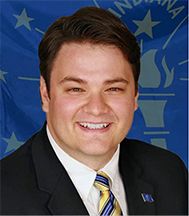
J.D. Ford
What do you see as the most pressing issue lawmakers will address in the upcoming legislative session?
I think youth mental health is one of the biggest issues we need to address. The U.S. Surgeon General issued a report that sounded the alarm that our young folks are not doing well. I serve on the child fatality review committee, and in that capacity, I received a report from Dr. Kris Box, our state health commissioner, that said student suicide is the leading cause of death for our 10-14-year-olds. For 15-17-year-olds, the leading cause is motor vehicle accidents, which there isn't much we can do about that. But the second leading cause for this age group is student suicide. We must get our arms around this issue, and I tried to do so this last session by putting forward a proposal that is the most comprehensive bill to deal with this issue. Fast forward to this year and Dr. Lindsay Weaver, the No. 2 at the Indiana State Department of Health, reports almost the same findings. Kids are taking their lives and we must be laser-focused on addressing this issue.
I also want to share that in the LGBTQ-plus community we know that the suicide rate is 6 times** that of their straight peers. So having someone like me be visible in their state government, in my opinion, is helping to save lives simply by being a role model for them, as representation matters. My hope is that we break this supermajority and finally address this tragedy.
** Editors’ Note: Many reports on teen LGBTQ+ suicide rates and attempts find they are more frequent that rates and attempts for teens who identify as straight. The most recent Centers for Disease Control and Prevention data reports this for LGB youth: “Nearly one-third (29 percent) of LGB youth had attempted suicide at least once in the prior year compared to 6 percent of heterosexual youth.” It also notes it is seeking more data on transgender and questioning/queer youth.
Indiana’s schools are facing numerous challenges including teacher shortages, racial achievement gaps, reading ability and declining college-going rate. What do you see as the state’s top education issues, and how would you address them?
As ranking member of the senate education committee, I hear from a lot of educators that they’re thankful for the compensation increase that was included in the 2021 budget, which I voted for, but that they also wish the General Assembly had more respect for educators. I believe we need to continue to raise compensation and give our teachers the respect they deserve so more of them do not leave the profession entirely.
We also need to ensure we are fully funding our public schools so that we know our hard-earned tax dollars are only going to schools which educate all Hoosier children, not for-profit charters and private interest groups.
Education isn’t a left-right issue and it affects every single one of us in the long term, whether we have school-aged children or not. Recently, we’ve seen more business leaders coming forward and speaking up on the abysmal state of education in our state, and how it undermines our economic development, such as Eli Lilly CEO Dave Ricks did recently. Indiana’s education system has been poorly managed by the GOP supermajority and state office control over the last 12 years. Hoosiers need to take a long hard look and ask whether this one-party rule has been working for us or not.
The second crisis is the declining rates of college attendance, especially among males. This is an area where the state needs to seriously invest in reversing the trend if we want to keep Indiana’s workforce ready and capable of filling the highly-skilled, high-wage jobs of the future.
As far as racial achievement gaps, I was proud to join the NAACP earlier this year when they unveiled their report (https://www.indynaacp.org/academic-excellence) on college attendance which was prepared in conjunction with education experts. I fully support their findings and will work in the Senate to implement their plan.
Indiana lacks affordable housing inventory and communities across the state deal with landlords who shrug off local health and safety violations. How would you address the state’s lack of affordable housing and laws to protect tenants from bad-acting landlords?
This one area where the city of Indianapolis has made a lot of progress in helping develop affordable housing as well as improving protections for tenants and cracking down on bad landlords. But after the city passed its Tenants Bill of Rights ordinance a few years back, the state legislature turned around and essentially banned this ordinance. Gov. Holcomb vetoed that bill and he was correct to do so, but unfortunately the GOP supermajority overrode the veto from itsown Republican governor. I stood with the governor on this issue by voting to sustain his veto and I stand by that decision. I see no value in a state legislature spending its time doing favors for bad landlords all over the state. This is a matter that is best handled at the local level. Unless the state wants to allocate funds to assist in affordable housing and tenant services, the best thing they can do on this issue is to get out of the way and let the locals handle it.
In recent legislative sessions, state lawmakers have tried to regulate local decision-making; two examples are wind turbine regulation and bail reform. How would you approach issues of local versus state control as a lawmaker?
Much like the ban on local governments regulating tenant-landlord policy, the state stepping in to meddle with renewable energy and criminal justice policy is a grotesque abuse of power. The state stepping in restricting how cities can construct wind turbines is no better than if the federal government came in and told the state they had to shut down all the coal and gas production facilities. As a state legislator, I have always stood firmly on the side of letting local governments make their own decisions, and I will continue to do so.
Indiana lawmakers voted to ban most abortions, with narrow exceptions for rape, incest and certain serious medical complications and emergencies. Would you support the legislature revisiting Indiana’s abortion law? What would you change?
I vehemently opposed the Indiana GOP’s extreme abortion ban, which was forced through in a special session this summer. The only abortion policy I would support is repealing SB1 and returning to Indiana’s pre-Dobbs standard, protecting a woman’s right to choose up until the point of fetal viability and always putting the health and safety of the mother at the forefront. Ultimately, this is a medical decision that no one takes lightly, and the final say should always rest with the woman and her doctor.
Election Day is Nov. 8, and you can find your polling place at the Indiana Voters Portal.
 DONATE
DONATE




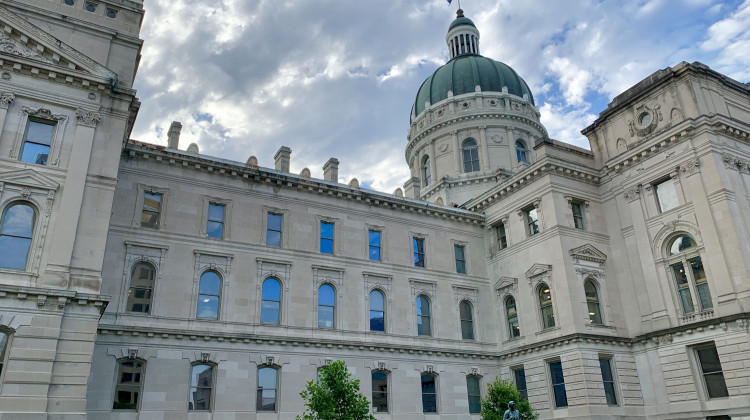

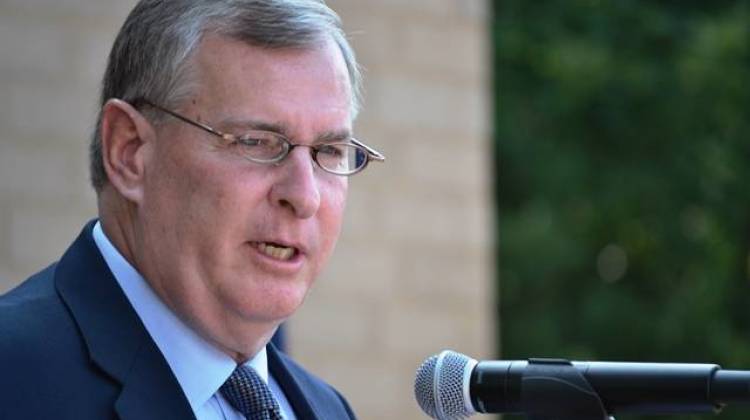
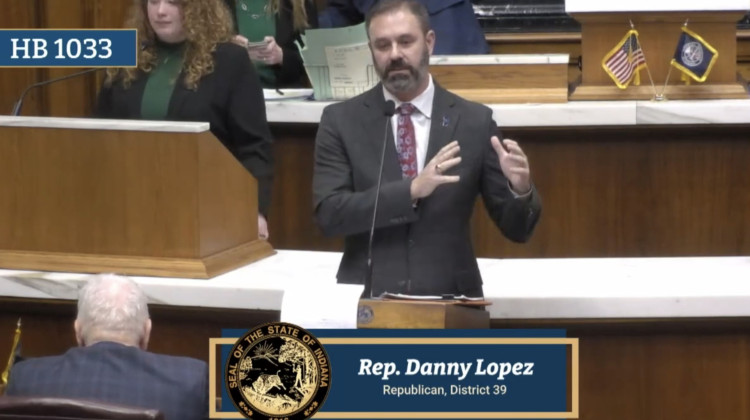
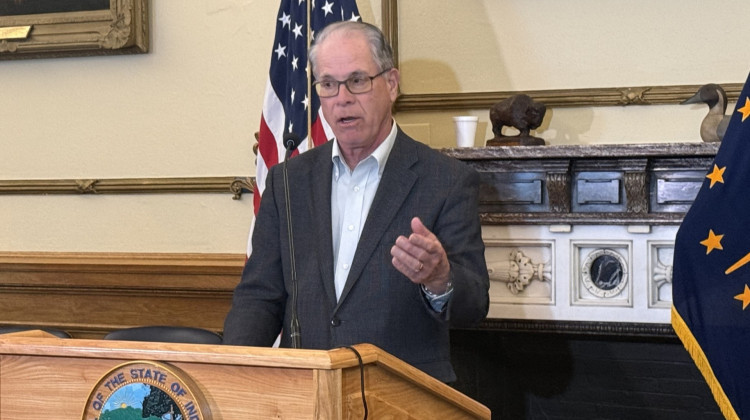

 Support WFYI. We can't do it without you.
Support WFYI. We can't do it without you.